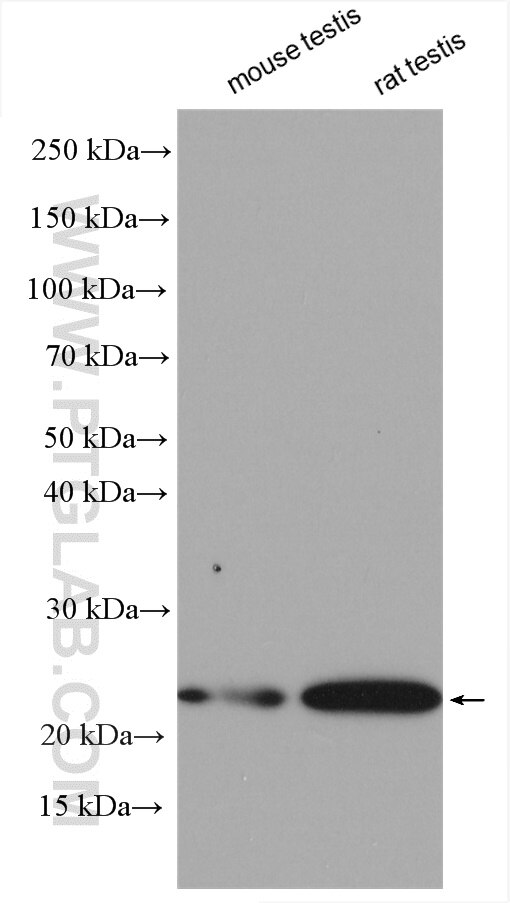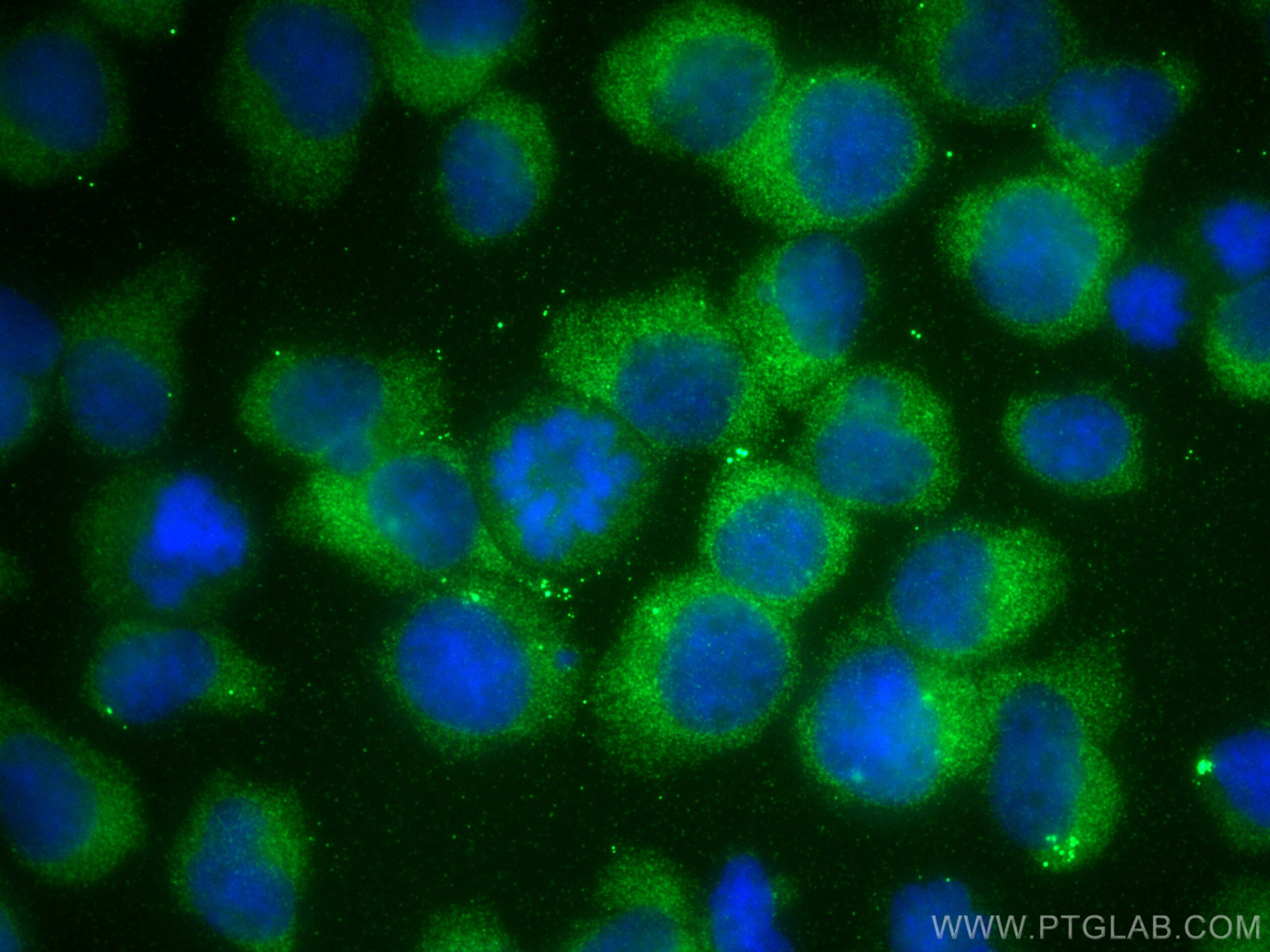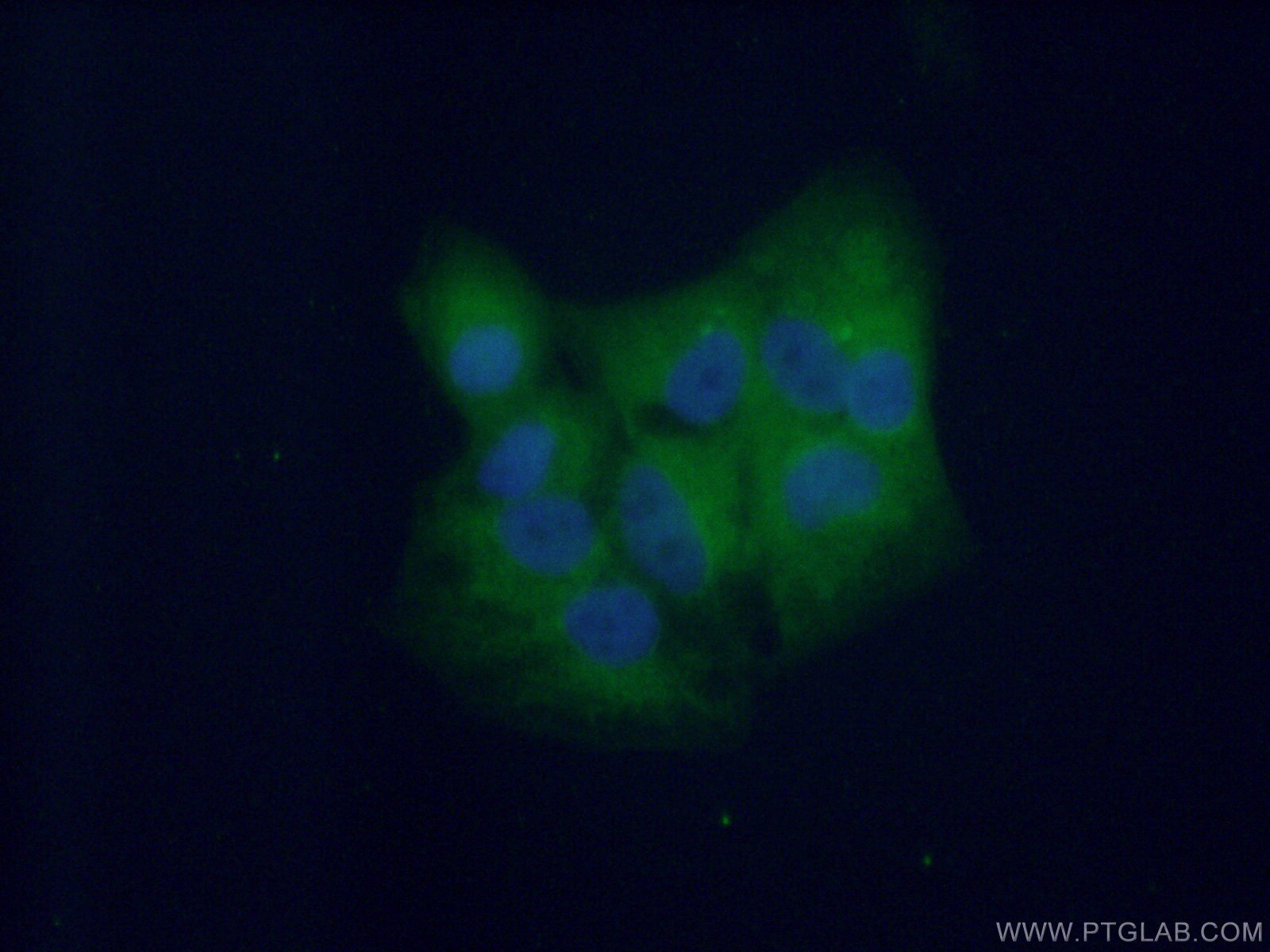Validation Data Gallery
Filter:
Tested Applications
| Positive WB detected in | mouse testis tissue, rat testis tissue |
| Positive IF/ICC detected in | Jurkat cells, A549 cells |
Recommended dilution
| Application | Dilution |
|---|---|
| Western Blot (WB) | WB : 1:2000-1:10000 |
| Immunofluorescence (IF)/ICC | IF/ICC : 1:50-1:500 |
| It is recommended that this reagent should be titrated in each testing system to obtain optimal results. | |
| Sample-dependent, Check data in validation data gallery. | |
Product Information
17480-1-AP targets DTD1 in WB, IF/ICC, ELISA applications and shows reactivity with human, mouse, rat samples.
| Tested Reactivity | human, mouse, rat |
| Host / Isotype | Rabbit / IgG |
| Class | Polyclonal |
| Type | Antibody |
| Immunogen | DTD1 fusion protein Ag11510 相同性解析による交差性が予測される生物種 |
| Full Name | D-tyrosyl-tRNA deacylase 1 homolog (S. cerevisiae) |
| Calculated molecular weight | 209 aa, 23 kDa |
| Observed molecular weight | 23-28 kDa |
| GenBank accession number | BC045167 |
| Gene Symbol | DTD1 |
| Gene ID (NCBI) | 92675 |
| RRID | AB_2230675 |
| Conjugate | Unconjugated |
| Form | Liquid |
| Purification Method | Antigen affinity purification |
| UNIPROT ID | Q8TEA8 |
| Storage Buffer | PBS with 0.02% sodium azide and 50% glycerol pH 7.3. |
| Storage Conditions | Store at -20°C. Stable for one year after shipment. Aliquoting is unnecessary for -20oC storage. |
Protocols
| Product Specific Protocols | |
|---|---|
| WB protocol for DTD1 antibody 17480-1-AP | Download protocol |
| IF protocol for DTD1 antibody 17480-1-AP | Download protocol |
| Standard Protocols | |
|---|---|
| Click here to view our Standard Protocols |


